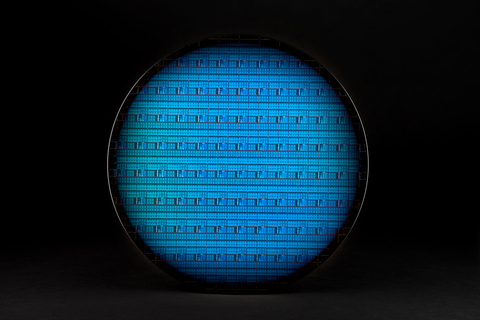SANTA CLARA, Calif.–Nature has published a groundbreaking Intel research paper titled “Probing single electrons across 300-mm spin qubit wafers,” showcasing remarkable advancements in the uniformity, fidelity, and measurement statistics of spin qubits. This cutting-edge research represents a significant milestone, paving the way for the mass production and further scalability of silicon-based quantum processors, crucial elements for the development of fault-tolerant quantum computers.
Intel’s quantum hardware researchers have developed a 300-millimeter cryogenic probing process to gather extensive data on the performance of spin qubit devices across entire wafers using complementary metal oxide semiconductor (CMOS) manufacturing techniques. The enhancements to qubit device yield, coupled with the high-throughput testing process, have enabled researchers to collect significantly more data for analyzing uniformity, a critical aspect in scaling up quantum computers.
The research team has also discovered that single-electron devices from these wafers exhibit strong performance when utilized as spin qubits, achieving an impressive 99.9% gate fidelity. This fidelity level is the highest reported for qubits produced using all-CMOS-industry manufacturing. Spin qubits are notably compact, measuring approximately 100 nanometers across, making them denser than other qubit types (e.g., superconducting), thereby allowing for the creation of more intricate quantum computers on a single chip of the same size.
The fabrication process utilized extreme ultraviolet (EUV) lithography, enabling Intel to achieve these precise dimensions while maintaining high-volume manufacturing capability. Developing fault-tolerant quantum computers with millions of uniform qubits necessitates highly reliable fabrication processes. Leveraging its extensive experience in transistor manufacturing, Intel is leading the charge in creating silicon spin qubits similar to transistors, utilizing its state-of-the-art 300-millimeter CMOS manufacturing techniques, which routinely produce billions of transistors per chip.
Moving forward, Intel intends to continue advancing these techniques by adding more interconnect layers to fabricate 2D arrays with increased qubit count and connectivity, as well as demonstrating high-fidelity two-qubit gates on its industry manufacturing process. However, the primary focus will remain on scaling quantum devices and enhancing performance with its next-generation quantum chip.

